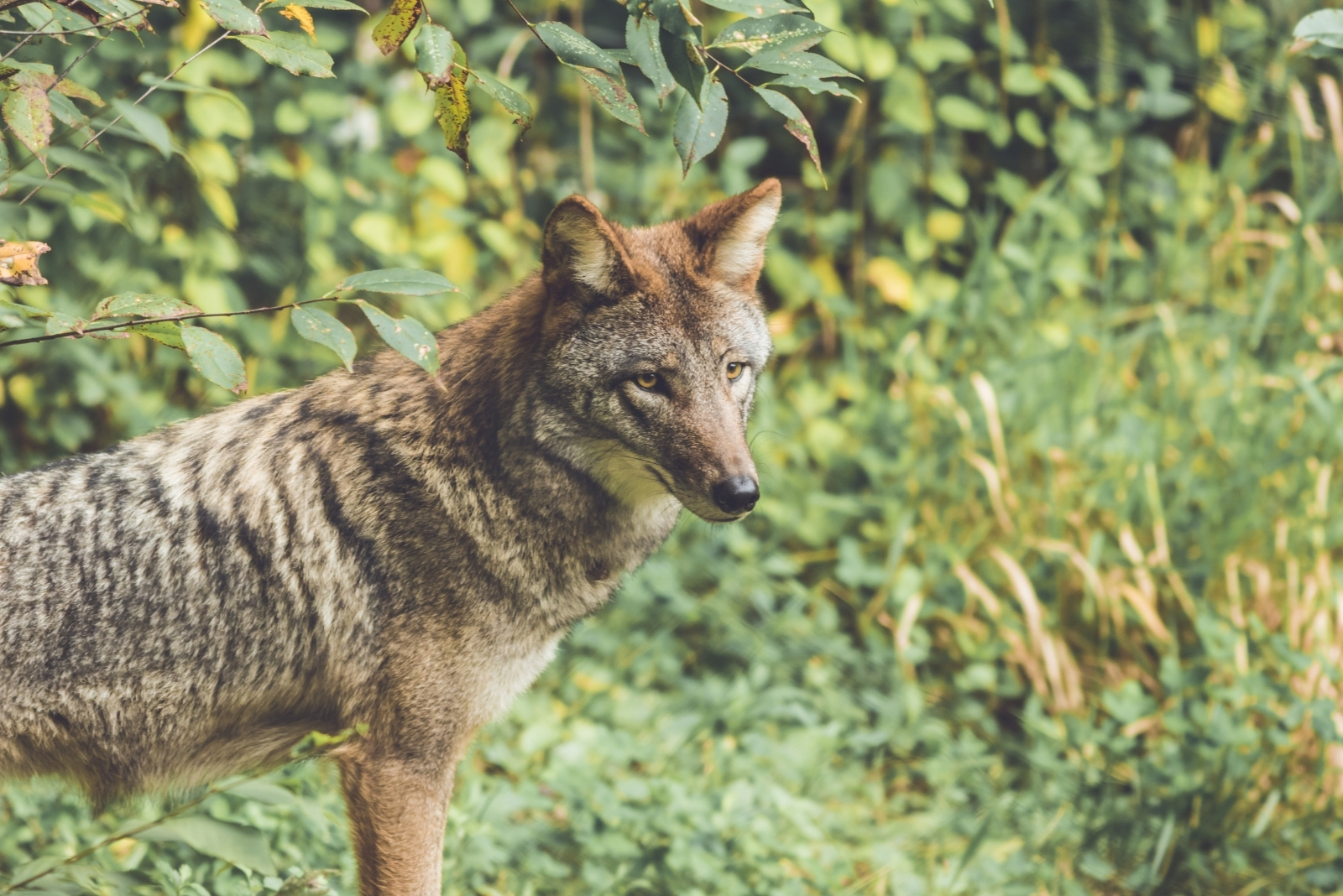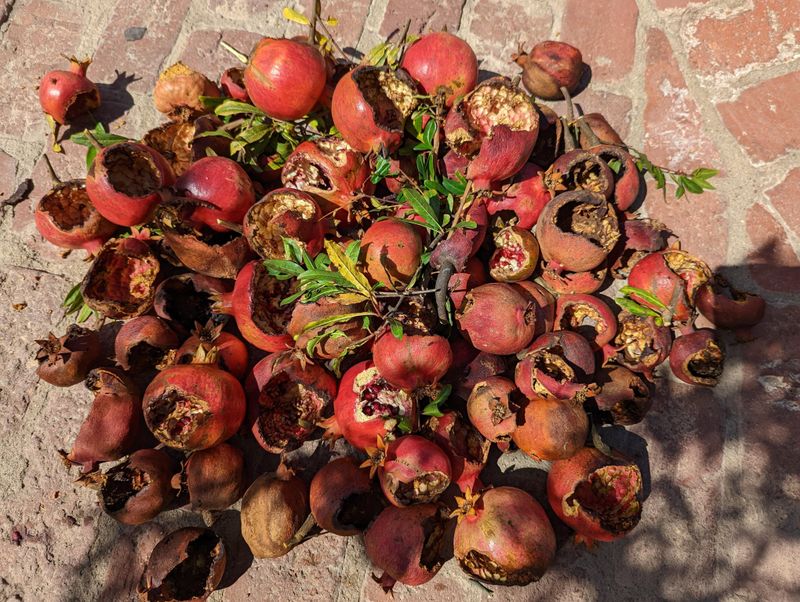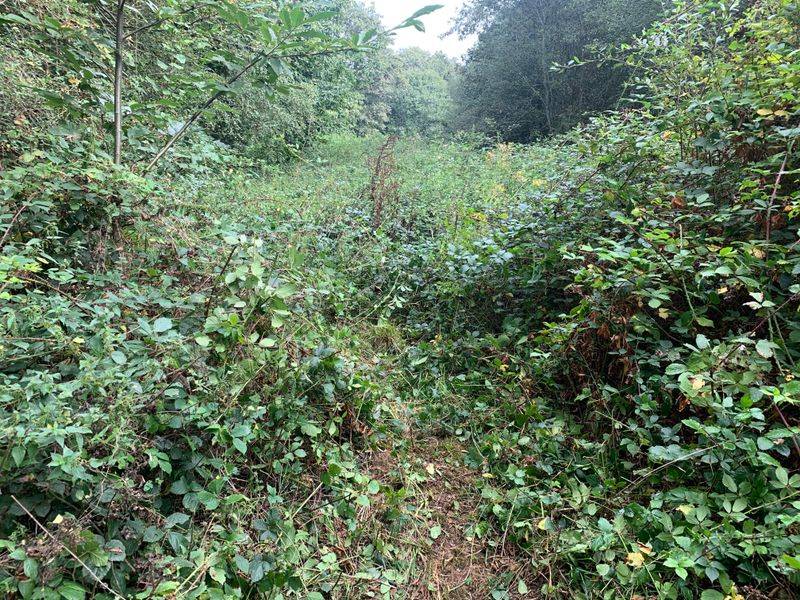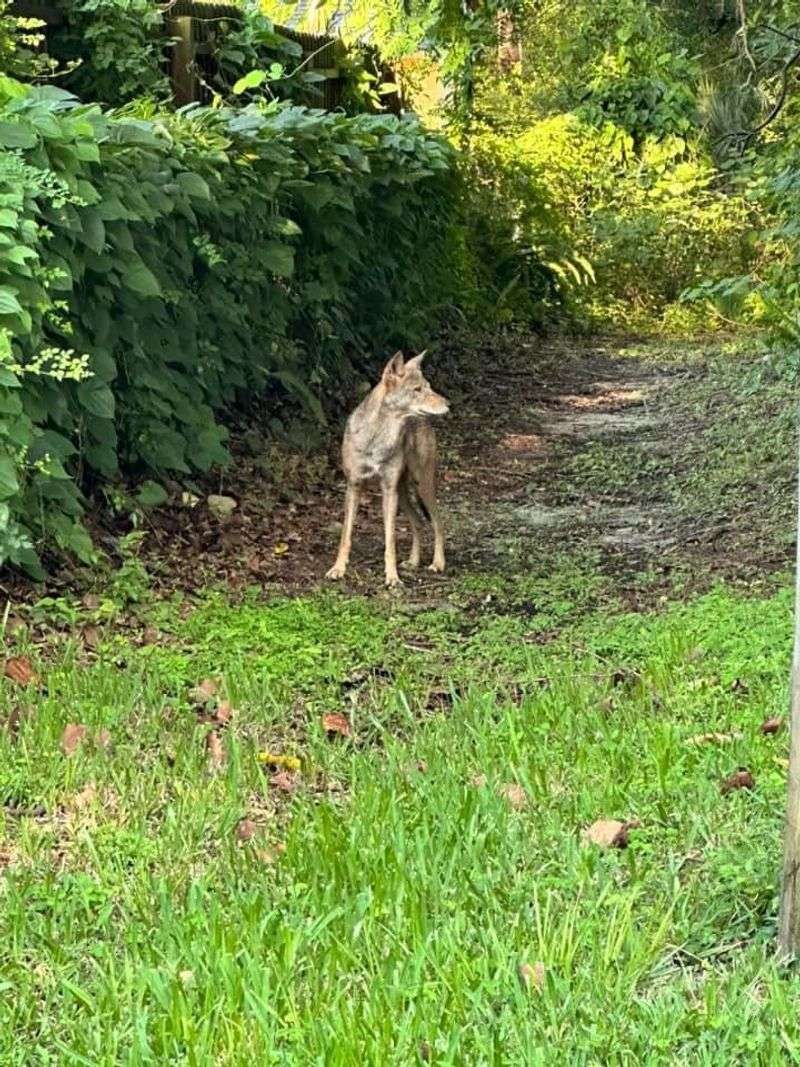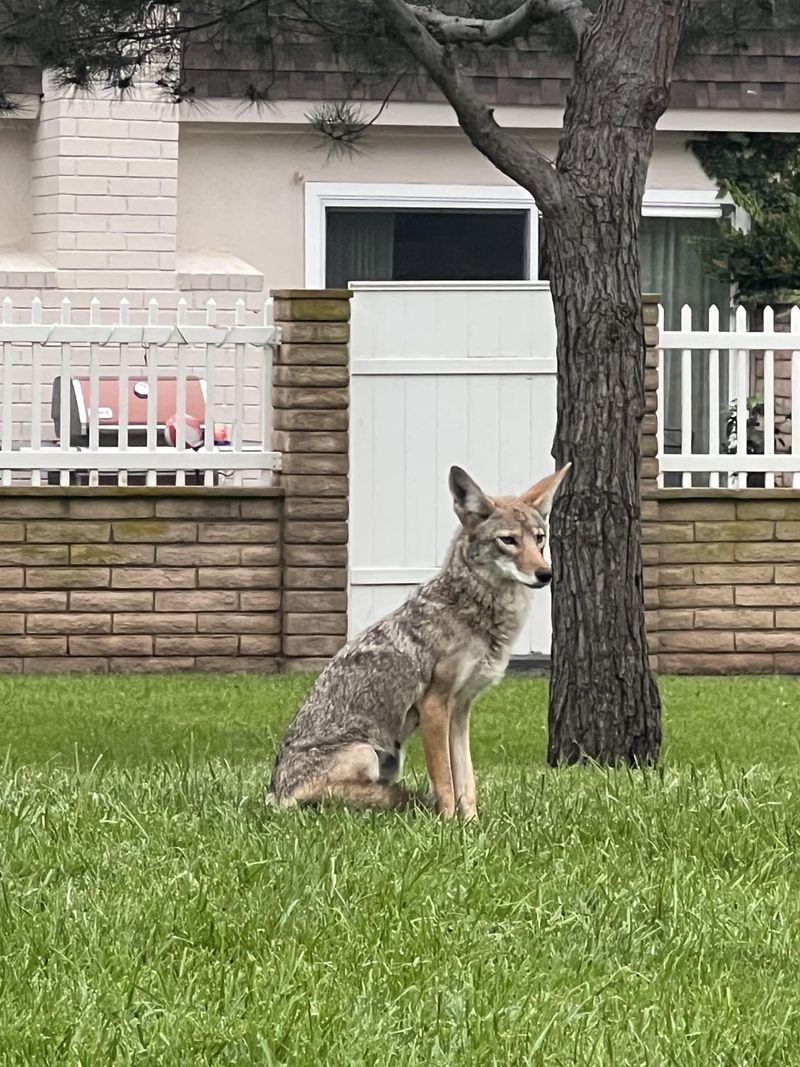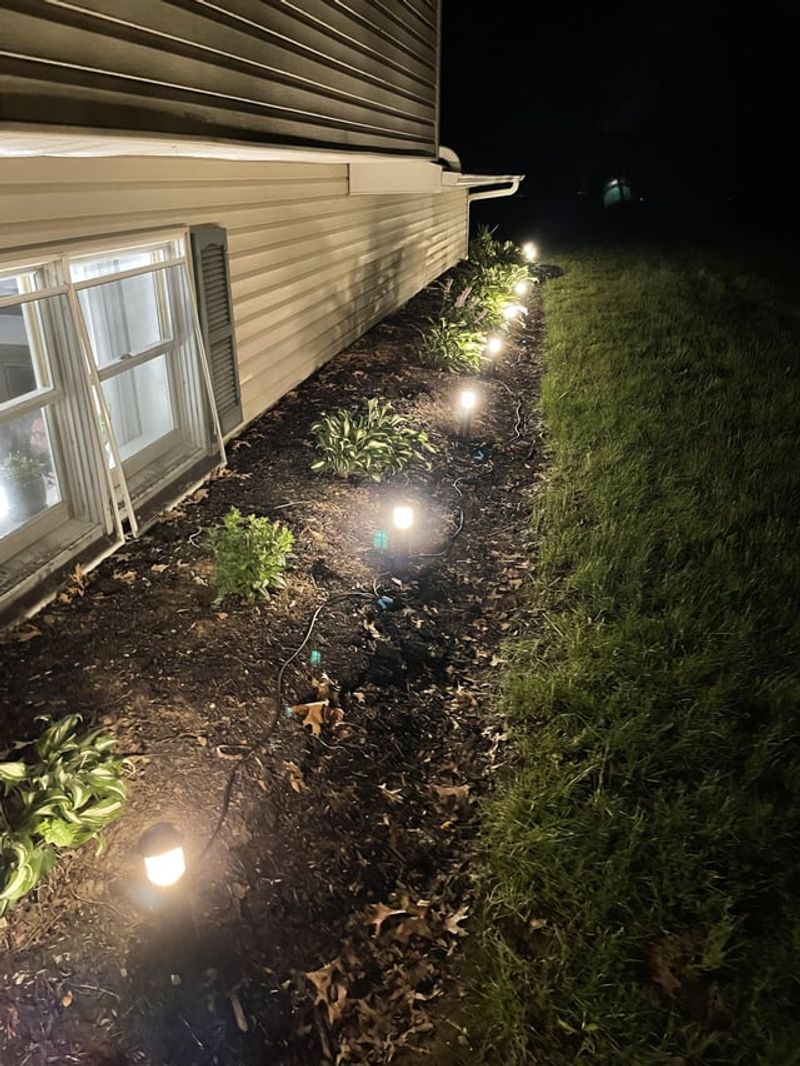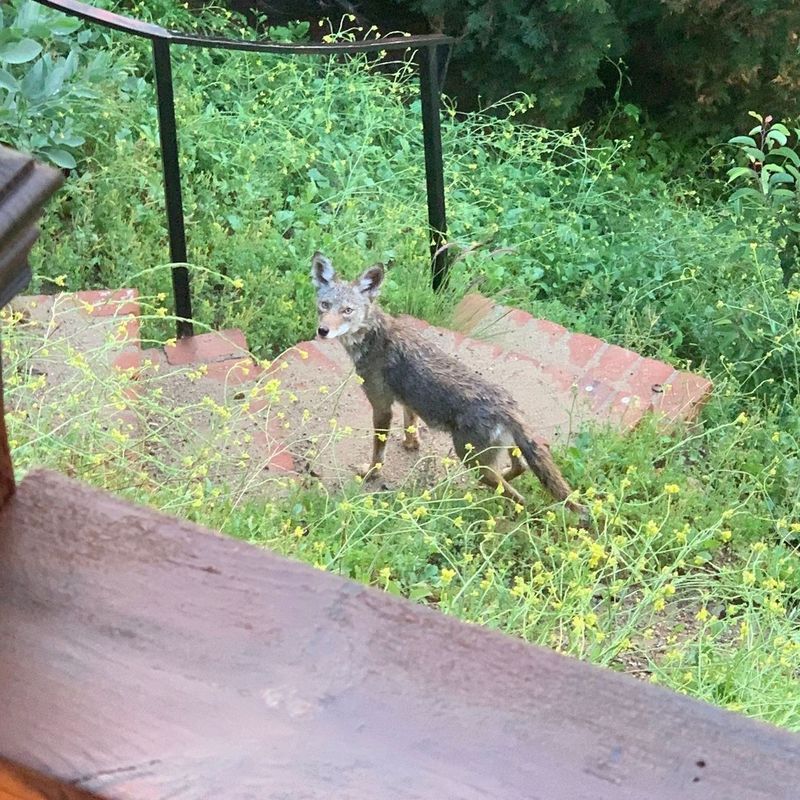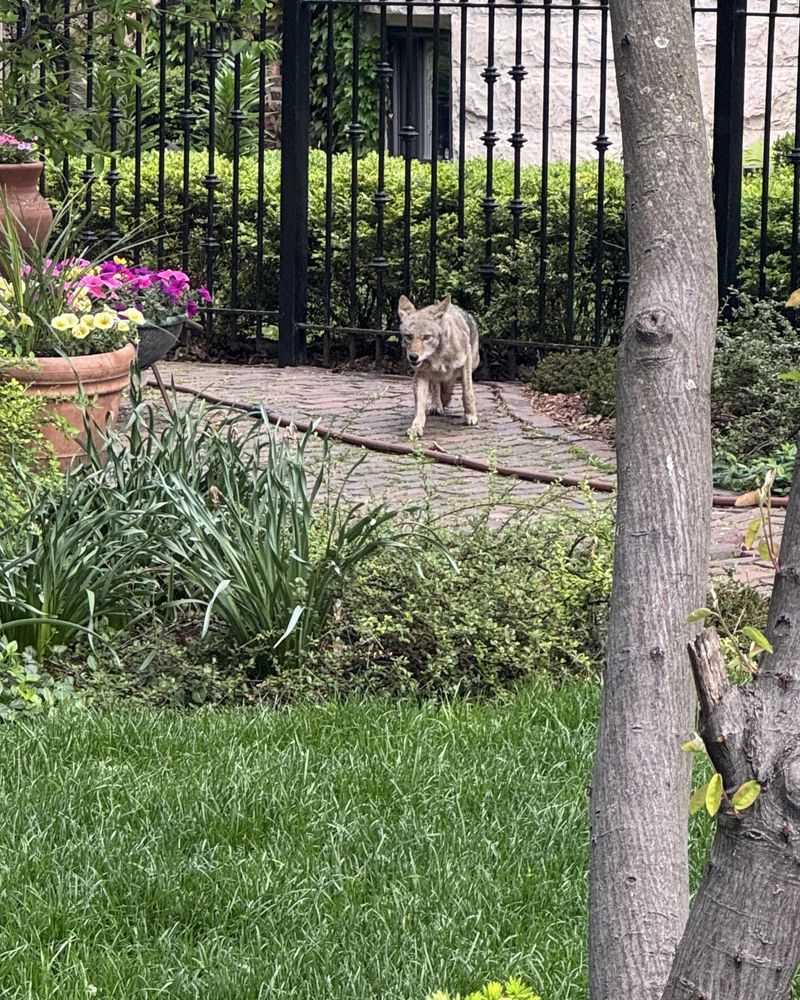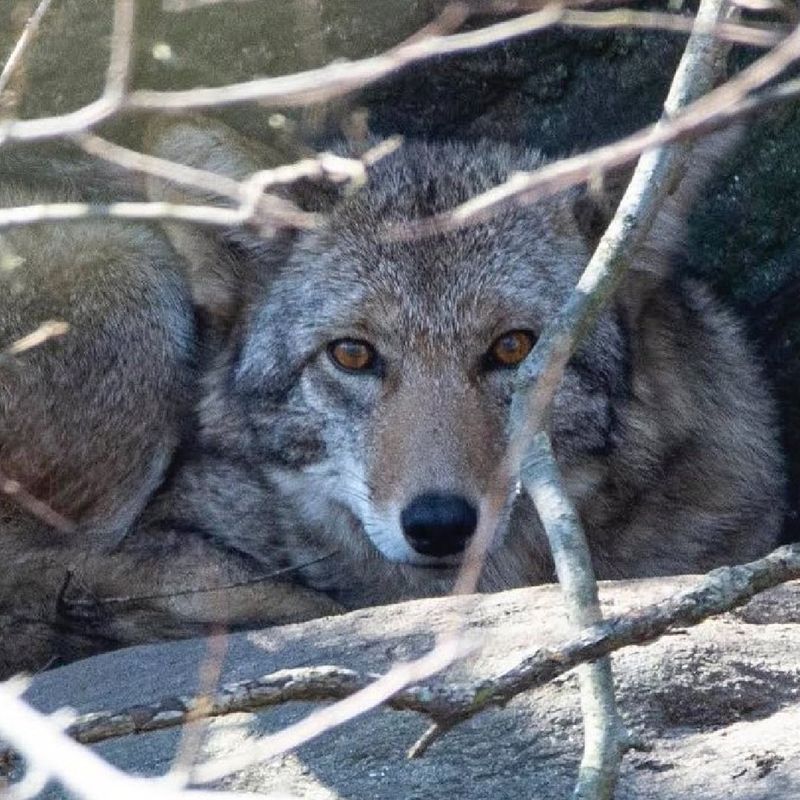If a coyote shows up in your New Jersey yard, it can be a bit unsettling. Most of the time, they’re just passing through and aren’t looking for trouble.
Taking a few smart steps can help keep your yard safe for you and your pets. At the same time, there are some things that can make the situation worse if you’re not careful.
Knowing what to do—and what to skip—makes handling a coyote sighting much easier.
1. Remove Food Sources
Garden areas can become unintentional coyote buffets. Pick up fallen fruits, secure compost bins, and never leave pet food outside overnight in your New Jersey yard.
Wildlife experts across the Garden State recommend eliminating easy meals as your first defense. Even bird feeders can attract rodents, which then attract coyotes.
2. Clear Dense Vegetation
Coyotes love hiding in overgrown areas. Trim back thick bushes and tall grasses around your property’s perimeter to eliminate potential dens or hiding spots.
Many New Jersey homeowners find that maintaining a more open landscape naturally discourages these cautious predators from feeling comfortable enough to linger or establish territory.
3. Install Motion-Activated Sprinklers
A sudden spray of water startles most wildlife without causing harm. Position these clever devices near garden entry points where coyotes might attempt to access your yard.
Throughout New Jersey counties, homeowners report success with this humane deterrent that teaches coyotes your property isn’t worth the unexpected shower they’ll receive when trespassing.
4. Use Natural Repellents
Certain scents naturally repel coyotes without harming them. Try sprinkling wolf urine granules (available at garden centers) or ammonia-soaked rags around your property’s boundaries.
New Jersey residents have found that refreshing these scent barriers weekly creates an invisible boundary that makes coyotes think twice before entering your outdoor space.
5. Make Your Presence Known
Regular human activity discourages coyote visits. Spend time in different parts of your yard, leave talk radio playing occasionally, or hang wind chimes that create unpredictable sounds.
Across New Jersey’s diverse neighborhoods, consistent human presence signals to wildlife that your property isn’t an ideal hunting ground for cautious predators seeking quiet, undisturbed territories.
6. Install Night Lighting
Coyotes prefer darkness for hunting and exploring. Solar-powered garden lights create an environment that feels exposed and risky to these naturally cautious animals.
New Jersey conservation officers note that strategic lighting doesn’t need to be harsh or energy-wasteful – simple path lights or motion-activated options effectively disrupt a coyote’s comfort zone.
7. Community Coordination
Coyotes don’t recognize property lines. Talk with neighbors about implementing consistent deterrent strategies throughout your area to create a larger unwelcoming zone.
Many New Jersey communities have successfully reduced coyote problems through neighborhood cooperation, sharing information about sightings and collectively removing attractants across multiple properties.
8. Chase or Corner Them
A cornered coyote becomes unpredictable and potentially dangerous. Never pursue or trap these wild animals, as they may feel forced to defend themselves when escape routes are blocked.
New Jersey wildlife officials emphasize that maintaining distance respects both your safety and the animal’s natural instincts to avoid human confrontation whenever possible.
9. Leave Small Pets Unattended
Small dogs and outdoor cats can appear as prey to hungry coyotes. Always supervise pets outdoors, especially during dawn and dusk when coyotes are most active.
Across New Jersey’s suburban landscapes, responsible pet owners use leashes during walks and create secure outdoor enclosures rather than risking unsupervised yard time.
10. Use Poison or Harmful Traps
Toxic substances or inhumane traps often harm unintended wildlife and pets. These methods are illegal in many New Jersey municipalities and create unnecessary suffering.
Garden State wildlife rehabilitators regularly treat non-target animals injured by misguided attempts to eliminate coyotes, highlighting why natural deterrents are always the ethical choice.

